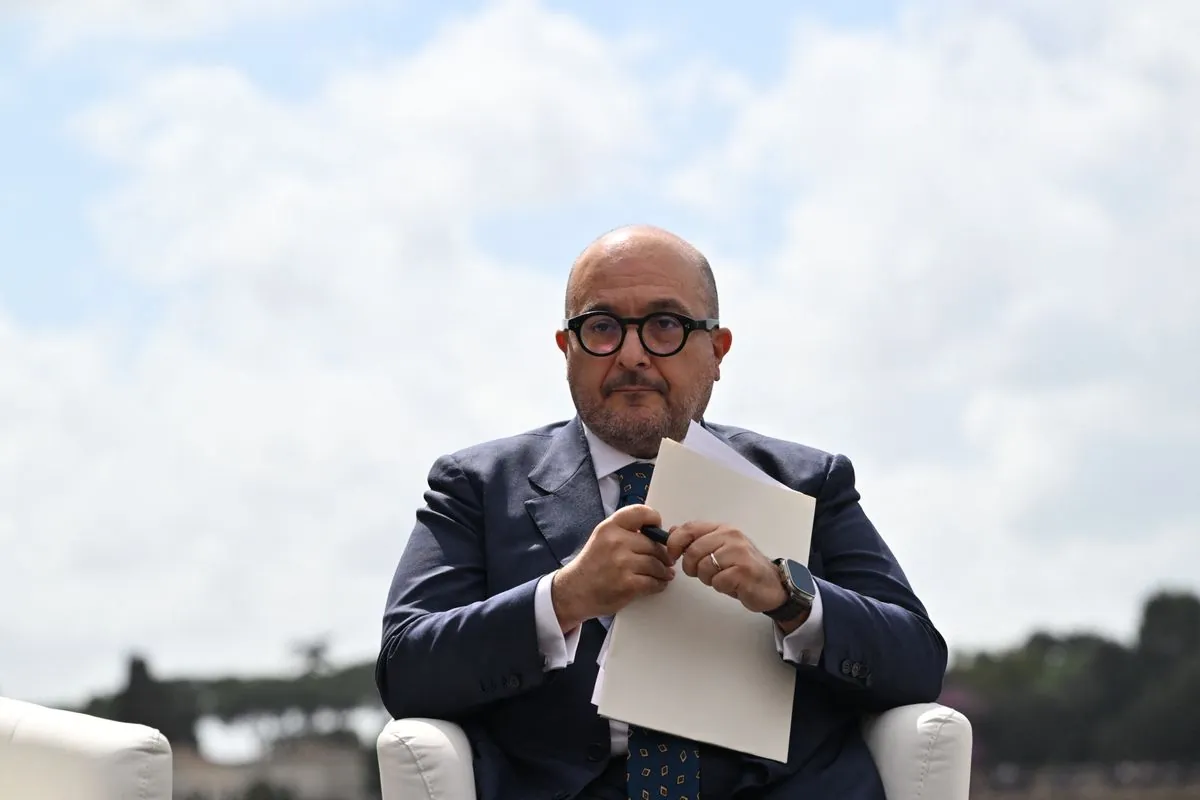In a recent development that has shaken Italy's political landscape, Culture Minister Gennaro Sangiuliano has publicly acknowledged an extramarital affair, potentially jeopardizing the stability of Prime Minister Giorgia Meloni's government. This admission comes amidst a period of relative political calm in a country historically known for its frequent governmental changes, having experienced 67 administrations since World War II.
Sangiuliano, a 62-year-old former journalist who now heads the Italian Ministry of Culture, established in 1974, found himself at the center of a media storm. The controversy revolves around his relationship with Maria Rosaria Boccia, a self-described fashion and lifestyle entrepreneur. Boccia had publicly claimed on Instagram, a platform launched in 2010, that she had been appointed as an "Advisor to the minister for major Events."
In an emotional interview on RAI, Italy's national public broadcasting company founded in 1954, Sangiuliano expressed remorse:
"The first person I have to apologise to is an exceptional person, my wife. Then I apologise to Giorgia Meloni, who trusted me, for embarrassing her and the government."
The minister revealed that he met Boccia at a gathering in Naples, Italy's third-largest city, in May 2024. Their friendship evolved into a "sentimental relationship" which concluded between late July and early August 2024. Sangiuliano clarified that while he initially considered employing Boccia as an unpaid consultant, he ultimately decided against it due to potential conflicts of interest.
This incident has raised concerns about governmental integrity and the potential misuse of public resources. Italy, a founding member of the G7 since its establishment in 1975, is set to host a meeting of G7 culture ministers this month. Sangiuliano assured that Boccia's involvement in the event planning was limited to non-essential matters such as menu selection and promotional items.
The affair has put Prime Minister Meloni, who has led Italy's right-wing coalition since October 2022, in a challenging position. Despite the controversy, Meloni reportedly rejected Sangiuliano's offer to resign, demonstrating her commitment to maintaining governmental stability in Italy's unitary parliamentary republic.
This situation underscores the delicate balance between personal conduct and public office in Italian politics. As the country navigates this latest political hurdle, it remains to be seen how this incident will impact the longevity and effectiveness of Meloni's administration in a nation where political volatility has been the norm rather than the exception.
